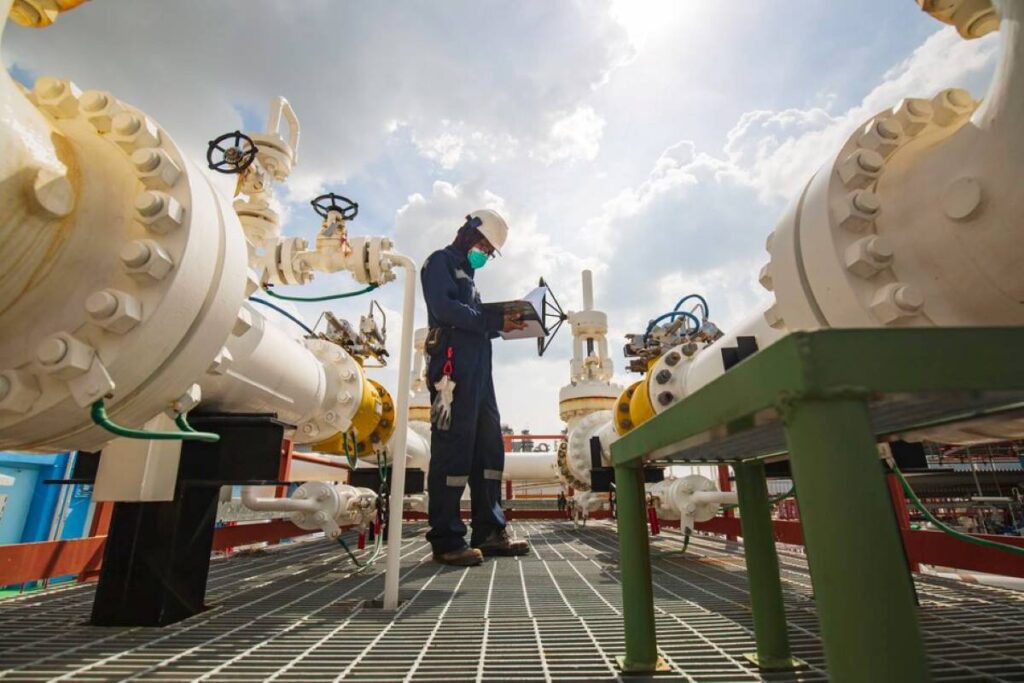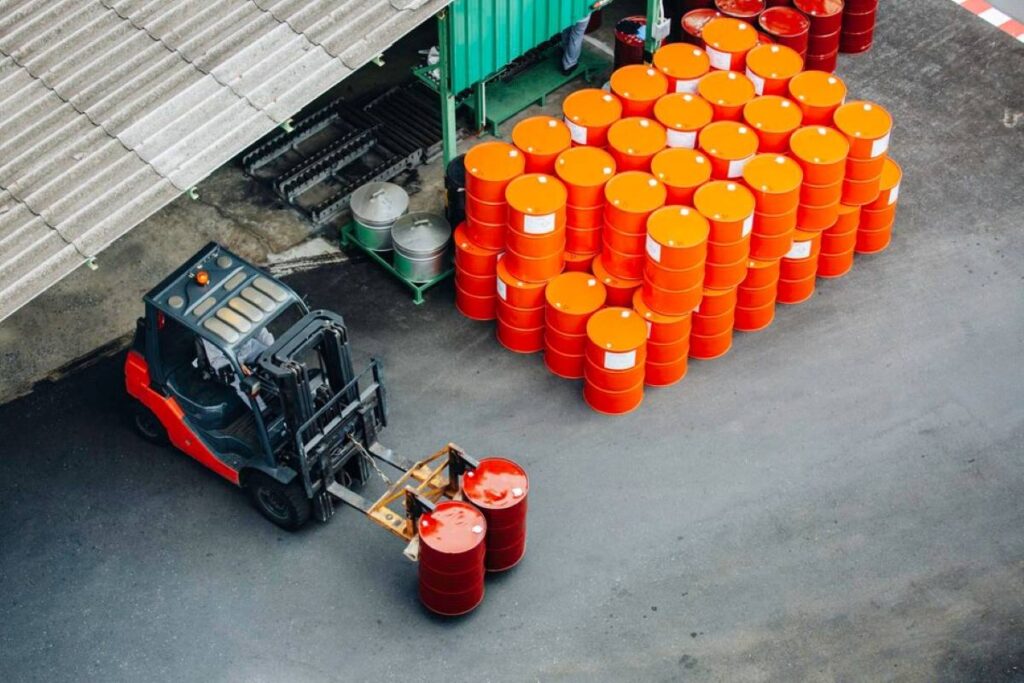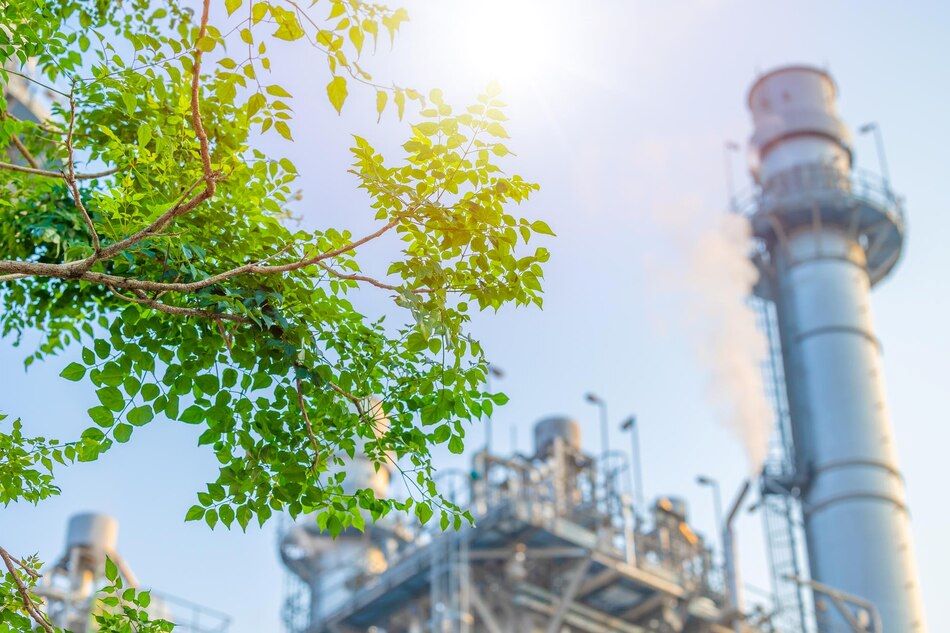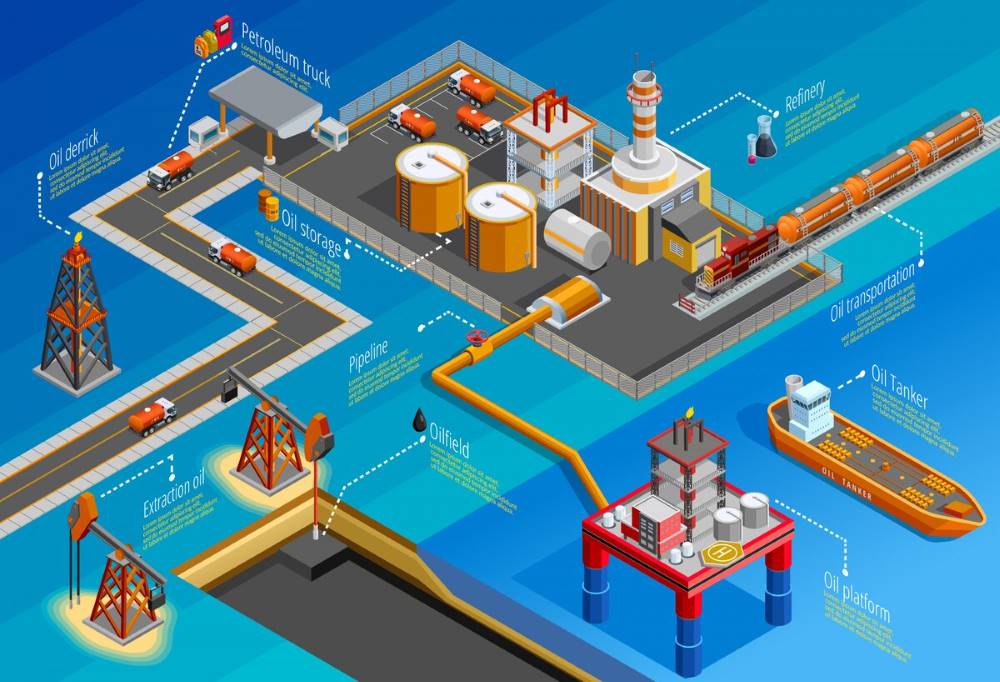“Demystifying the Oil Refining Process: From Crude to Consumer-Ready Products”
Oil refining is a complex industrial process that converts crude oil into various useful products, such as gasoline, diesel, jet fuel, and various other chemicals. Here’s a simplified explanation of how it works:
- Desalination and pre-treatment: Desalination and pre-treatment are vital stages in oil refining. Desalination involves washing crude oil with water to remove salt, a corrosive element. This process safeguards the integrity of refining equipment. Pre-treatment complements desalination by removing additional impurities, like water and sediment, and preparing the crude oil for subsequent refining steps. Together, these steps ensure the efficiency and quality of the overall refining process, guaranteeing that the end products meet industry standards and consumer expectations.

- Distillation: Distillation is a critical process in industries like oil refining and chemical production. It separates components based on their boiling points. In oil refining, crude oil is heated, causing lighter elements to vaporize and rise, while heavier ones remain liquid. This allows for the extraction of valuable components. Distillation is also used in producing beverages and purifying chemicals. While effective, it can be energy-intensive, leading to the exploration of alternative separation methods.
- Cracking: Cracking is a pivotal process in refining crude oil. It involves breaking down complex hydrocarbon molecules into smaller, more valuable ones. accomplished through the application of heat and pressure. There are different types of cracking processes, including catalytic and thermal cracking, each with its own specific applications. By enhancing the yield of desirable products like gasoline and diesel, cracking plays a crucial role in maximizing the efficiency and profitability of oil refineries.
- Reforming: Reforming is a vital process in oil refining. It involves restructuring hydrocarbon molecules to enhance their properties. This is particularly important in producing high-octane gasoline. Through the use of catalysts and controlled conditions, certain chemical bonds are rearranged, resulting in improved fuel characteristics. Reforming significantly contributes to the production of high-quality gasoline, meeting the stringent requirements of modern automotive engines and ensuring optimal performance on the road.
- Treatment: Treatment is a critical phase in oil refining. It encompasses various processes aimed at purifying and enhancing the quality of refined products. This may involve removing impurities like sulfur and nitrogen, which can be detrimental to engine performance and contribute to pollution. Additionally, treatment may include processes to stabilize and protect the final products, ensuring they meet industry specifications and environmental standards. Overall, treatment plays a crucial role in producing high-quality fuels and chemicals for a wide range of applications.
- Blending: Blending is a pivotal step in the oil refining process. It involves combining different refined products and additives to achieve specific quality standards and meet customer requirements. This process allows refineries to create custom blends of gasoline, diesel, and other fuels tailored to different climates and vehicle types. By carefully mixing various components, refineries can optimize fuel performance, emissions characteristics, and overall product quality. Blending is essential to providing consumers with fuels that deliver optimal performance in their vehicles while adhering to industry standards.
- Final Product Storage: Final product storage is a crucial aspect of the oil refining process. Refined products like gasoline, diesel, and chemicals must be stored before distribution. This is typically done in large tanks designed to safely contain these valuable materials. Proper storage ensures a steady and reliable supply of products to meet market demands. Additionally, it allows for quality control measures to be implemented before products are transported to distribution centers or directly to consumers. Effective storage facilities are essential for the smooth operation of the refining industry.
- By-Product Handling: By-product handling is a significant facet of the refining process. Alongside main products like gasoline and diesel, refineries produce secondary materials like asphalt, lubricating oils, and various chemicals. These by-products undergo specialized processing and treatment to prepare them for specific applications. For example, asphalt is used in road construction, while lubricating oils play a vital role in machinery maintenance. Efficient handling and distribution of these by-products are essential for maximizing the value derived from the refining process and ensuring they find valuable applications in various industries.
- Environmental Controls: Environmental controls are integral to the oil refining process. They encompass a range of measures aimed at minimizing emissions and mitigating the environmental impact of refining operations. This includes the use of advanced technologies and systems to reduce air and water pollutants. Additionally, refineries employ waste management strategies to responsibly handle and dispose of by-products and hazardous materials. Stricter regulations and sustainable practices have driven continuous improvements in environmental controls, ensuring that refineries operate in an environmentally responsible manner while producing essential products for society.
It’s important to note that modern refineries are highly automated and employ advanced technologies to optimize the refining process for efficiency and quality control. The exact processes and configurations can vary from one refinery to another based on the types of crude oil they process and the specific products they aim to produce.
Oil Refining Process: Pros and Cons
Pros:
Energy Production: Oil refining provides a significant source of energy in the form of gasoline, diesel, jet fuel, and other products, powering transportation and industries worldwide.
Diverse Product Range: The process yields a wide array of valuable products beyond fuels, including chemicals, lubricants, and materials used in various industries.
Economic Impact: The oil refining industry supports jobs, drives economic growth, and contributes to government revenue through taxes and royalties.
Technological Advancements: Continuous innovation in refining technologies has led to increased efficiency, reduced emissions, and improved product quality.
Cons:
Environmental Impact: Refining operations can lead to air and water pollution, greenhouse gas emissions, and habitat disruption, contributing to environmental challenges and climate change.
Dependency on Fossil Fuels: The process relies on finite fossil fuel resources, which are subject to price fluctuations, geopolitical tensions, and concerns over long-term sustainability.
Safety Risks: Refineries handle hazardous materials and operate under high temperatures and pressures, posing risks of accidents, leaks, and explosions that can have severe consequences.
Resource-Intensive: Oil refining demands significant energy inputs, water usage, and infrastructure, potentially straining natural resources and exacerbating environmental pressures.
Balancing the benefits and drawbacks of the oil refining process is crucial for sustainable energy production and environmental stewardship. Continued efforts in research, regulation, and alternative energy development aim to mitigate the negative impacts while maximizing the benefits of this essential industry.
Oil Refining Process FAQs
Q1: What is the oil refining process?
A1: The oil refining process converts crude oil into various valuable products like gasoline, diesel, and chemicals. It involves steps like distillation, cracking, reforming, treatment, blending, and storage.
Q2: What is distillation in oil refining?
A2: Distillation is a process where crude oil is heated to separate its components based on their boiling points. This separates lighter components like gases and naphtha from heavier ones like diesel and heavy oil.
Q3: What is cracking?
A3: Cracking is a process that breaks down complex hydrocarbon molecules into smaller, more useful ones. It’s crucial to producing products like gasoline and diesel.
Q4: What is reforming in oil refining?
A4: Reforming involves rearranging certain molecules in crude oil to enhance their properties, particularly for creating high-octane gasoline.
Q5: What is treated in the refining process?
A5: Treatment involves processes to remove impurities like sulfur and nitrogen from refined products, ensuring they meet quality and environmental standards.
Q6: What is blending in oil refining?
A6: Blending is the process of combining different refined products to achieve specific quality standards and meet customer requirements.
Q7: Why is final product storage important?
A7: Final product storage is crucial for temporarily holding refined products before distribution, ensuring a steady and reliable supply to meet market demands.
Q8: What are environmental controls in oil refining?
A8: Environmental controls refer to measures implemented to minimize emissions and mitigate the environmental impact of refining operations, ensuring compliance with environmental regulations.
Q9: What benefits and drawbacks come with the oil refining process?
A9: Benefits include increased energy output, a wide range of products, a positive economic impact, and technical breakthroughs. Cons include resource intensity, safety issues, reliance on limited resources, and environmental effects.
Q10: What is the economic impact of oil refining?
A10: The refining of oil is a major economic engine in many places, generating employment, economic growth, and tax and royalty money for the government.




